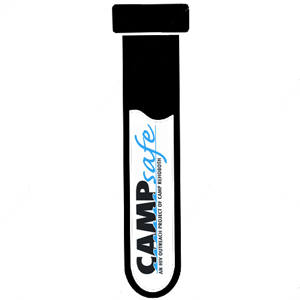All About PrEP & PEP
What is PrEP?
PrEP (Pre-exposure prophylaxis) is a sexual health prevention option for people who are at high risk of getting HIV. PrEP is a pill taken once daily, and should be used with other prevention options, such as condoms. PrEP can stop HIV from spreading throughout your body. It is highly effective for preventing HIV if used as prescribed.
 Should I go on PrEP?
Should I go on PrEP?
PrEP is for people without HIV who might be at higher risk. PrEP can also be considered for people who are HIV-negative and in an ongoing sexual relationship with an HIV-positive partner.
PrEP is recommended for people who:
Gay and Bisexual Men
- Have multiple sex partners
- Men who do not regularly use condoms for anal sex
- Have been diagnosed with an STI in the past six months
Heterosexual
- Does not regularly use condoms for penetrative sex with partners of unknown HIV status
- May also be at risk of HIV infection (i.e. people who inject drugs or women who have sex with bisexual male partners)
- Has injected drugs in the past 6 months, has shared needles, or works / has been in drug treatment in the past 6 months
Because PrEP involves daily medication and regular visits to a health care provider, it may not be right for everyone. PrEP may cause minimal side effects, like nausea in some people, but these generally subside over time.
 Talking with my doctor about PrEP.
Talking with my doctor about PrEP.
Before your visit:
- Do research: Educate yourself on PrEP ahead of time. Also, make a list of reasons why you think that PrEP would be a good choice for you.
- Think about routine: Will PrEP fit in with your daily routine? Will it be easy or hard to stick to a schedule?
- Make a healthy history list: Bring a list that includes any past illnesses or concerns you have, as well as a list of your current medications (including supplements, herbs, etc.) to your doctor.
- Make sure a translator is available or bring someone who can translate if you would prefer to speak a language other than English during your appointment.
During your visit:
- Be clear. Take out your notes and tell your doctor that you are interested in PrEP right away.
- Do not be shy. Give your doctor all the details about your life that could be important to your health. The more honest you are, the better your doctor can cater to your needs and support you.
After your appointment:
- Review your notes or any information provided by your doctor.
- Consider your options. Your doctor gave you a lot of information. Now it is up to you to make the right decision for you.
- Call your doctor if you have more questions. Ask to speak to a nurse if your doctor is unavailable.
- Schedule tests or follow-up appointments your doctor requested. Get your results if you had tests done at your appointment.
- If you feel comfortable, you may want to discuss this choice with your partners, family, or friends.
What to expect from your provider:
- Test for HIV including acute infection.
- If HIV positive, provide or refer patient for HIV treatment and other services to maintain health and prevent further spread of HIV.
- If HIV negative, ask about sex and drug use behaviors.
- If HIV risk is low, discuss prevention methods.
- If HIV risk is high, discuss risk behaviors, PrEP, and use of other prevention methods.
- Order recommended tests if patient is interested in PrEP and could benefit from it.
- If tests show reason not to prescribe PrEP (e.g. abnormal kidney function), discuss other prevention methods.
- Test for STDs, including site specific tests (of the rectum and the throat), based on risk.
- If tests show patient still benefits from taking PrEP, discuss insurance information.
- Prescribe
- PrEP and instruct patient to take one pill every day.
Currently Truvada®* is the only medicine approved by the FDA for PrEP.
*Tenofovir disoproxil fumarate/emtricitabine
- PrEP and instruct patient to take one pill every day.
- Follow-up
- Schedule appointments every 3 months for follow-up, including HIV testing, STD testing, including site specific tests (of the rectum and the throat), based on risk, and prescription refills.
Questions to consider when thinking about starting PrEP:
- Am I a good candidate for PrEP?
- How effective would PrEP be at reducing my risk of HIV infection?
- Are there any side effects?
- Can you prescribe PrEP for me here?
- What other options can lower my risk of getting HIV infection in addition to PrEP?
- Are there ways to help me to pay for PrEP if I need assistance?
- Are you willing to prescribe and manage PrEP for me?
- How often will I have to be tested for HIV and other STDs?
 How do I pay for PrEP?
How do I pay for PrEP?
PrEP is covered by most insurance providers. At this time, all insurance policies available in Vermont cover PrEP for people who need it, but co-pays and deductibles vary from policy to policy. Whether you're insured or not, check out the flow chart from Project Inform below to find out how you can get covered for PrEP!
 Finding a PrEP Provider.
Finding a PrEP Provider.
PrEP can be prescribed only by a healthcare provider, so talk to yours to find out if PrEP is the right HIV prevention strategy for you. You must take PrEP daily for it to work. Your healthcare provider will run an HIV test before prescribing PrEP to be sure that you do not already have HIV and will re-test every 3 months while you’re taking it. Plan to see your provider on a regular basis.
CAMP Rehoboth staff can help you find a PrEP provider in Delaware. You can also check out the PREP LOCATOR to locate the closest medical provider. The Delaware HIV Consortium has a PrEP page which lists additional doctors in Delaware that prescribe PrEP.
 More Information about PrEP.
More Information about PrEP.
Check out these online resources for more information about PrEP:
 Get tested for HIV + STIs.
Get tested for HIV + STIs.
As a part of our HIV Prevention & Testing program, we offer free, rapid, and confidential HIV tests to our community. Staff will talk to you about all of your HIV prevention options. View our testing sites and schedule here.
 What is the difference between PrEP and PEP?
What is the difference between PrEP and PEP?
PEP (Post-exposure Prophylaxis) is a medication regimen someone who is currently HIV-negative can take to reduce their risk of becoming infected after they have been exposed to HIV. PEP must be started within 72 hours after a possible exposure and continue for 28 days. If you think you have been exposed to HIV—semen leaking out of a condom during sex, a sex partner ejaculated inside you without a condom on, a partner whose status you do not know, or you have shared drug-injection equipment—contact your healthcare provider or local hospital emergency room as soon as possible. Remember, you only have 3 days to get on PEP and you are on it for 28 days. Click here for more info about PEP.
PrEP (Pre-exposure prophylaxis) is an HIV prevention tool in which an HIV-negative person takes antiretroviral medication to reduce the risk of contracting HIV. Currently, the available form of PrEP entails taking the pill Truvada, which is made of two drugs—tenofovir and emtricitabine. When these meds build up in the human body, they can stop HIV from replicating and establishing an infection.

